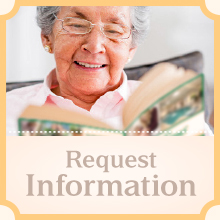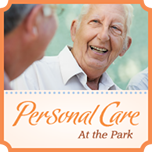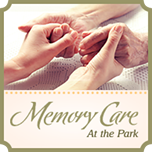While it’s great for seniors to get outside on a warm sunny day, taking proper skincare precautions is of the utmost importance. As we age, our skin becomes more delicate and prone to damage. For adults over the age of 65, protection from the elements is essential. Sun damaged skin is weaker, leathery, and easily bruised.
Before going outside to bask in the warm rays of the sun, take the time to choose the appropriate sunscreen. With multiple types, brands, and strengths of sunscreen available, picking the right combination can quickly become confusing. Luckily, the Environmental Working Group puts out an updated list of safest and most effective sunscreens each year.
The highest scores are awarded to sunscreens that provide excellent UV (ultraviolet) protection and are made from nontoxic ingredients. For 2019, the following sunscreens made the Environmental Working Group’s “top 10” list:
- All Terrain AquaSport Lotion, SPF 30
- Alba Botanica Very Emollient Sport Mineral Sunscreen, SPF 45
- Aubrey Organics Natural Sun Sunscreen, Unscented, SPF 45
- Badger Sport Sunscreen Cream, Unscented, SPF 35
- Blue Lizard Australian Sunscreen, Sensitive, SPF 30+
- Caribbean Solutions SolGuard Sunscreen, SPF 25
- DeVita Skin Care Solar Body Moisturizer, SPF 30+
- Nature’s Gate Sport Sunscreen Lotion, SPF 50
- Safe Harbor Natural Suncare Sensitive Lotion Mineral Sunscreen, SPF 30
- Thinksport Livestrong Sunscreen, SPF 50+
Sunscreen Tips
When going outside for more than 15 minutes, seniors should apply sunscreen first. Remember to apply the lotion or cream liberally. Experts suggest using at least two tablespoons of sunscreen for areas of the body that are normally exposed and a nickel-sized portion just for the face.
Older adults should apply sunscreen about an hour before heading outside and into the sunshine. Additionally, it’s important to reapply the product every two hours, even sooner if the hot weather is causing the senior to sweat.
You should either purchase a new tube of sunscreen each spring or check to make sure the existing tube of sunscreen has not expired. Past the listed expiration date, sunscreen is ineffective and has the potential to cause serious skin irritation.
While a certain amount of anxiety is considered normal, excessive amounts can pose serious health risks, especially among seniors. High anxieties can quickly lead to an irrational sense of dread for everyday situations. These feelings sometimes morph into a disabling disorder.
Left untreated, stress and worry can lead to:
Anxiety
Anxiety among older adults frequently occurs alongside other illnesses such as depression, diabetes and heart disease. In a cruel twist, depression also increases a senior’s risk of developing an anxiety disorder. Combined with cognition difficulties and life changes, matters can get highly complicated.
Late-life anxiety is more common in females than males; both genders tend to have chronic medical disorders. For these reasons, accurately diagnosing a senior’s anxiety disorder can be tricky.
OCD
Seniors with obsessive compulsive disorder (OCD) experience persistent upsetting thoughts or obsessions. To ease the anxiety, older adults perform rituals. Let’s say a senior is obsessed with germs; he may spend hours on end cleaning with bleach or washing his hands. Even when prolonged exposure to cleaning chemicals forms hand sores, seniors with OCD continue performing the very rituals that caused the sores to develop.
To be clear, agonizing over something like germs and performing constant rituals is not pleasurable for seniors with OCD. Instead, the rituals are more like putting a band-aid on a festering wound. Older adults who suffer anxiety disorders are often mistaken for Alzheimer’s disease or dementia.
Hoarding
Seniors who suffer from compulsive hoarding will exhibit some clear-cut behaviors. First and foremost, they bring home excessive and unexplainable collections of items. Once they have these items in hand, seniors cannot bear the thought of throwing them away.
Compulsive hoarding is another disorder that’s associated with anxiety and OCD. With a never ending collection of items that most people would see as trash, seniors tend to ignore the fact that junk has taken over. Some hoarding seniors are perfectly willing to let the clutter build, ignoring the fact that their living spaces are rapidly declining. The home of a hoarder can quickly be identified by cramped living conditions, dilapidated homes swimming in germs, and narrow walkways carved out through the mountains of clutter.
It’s that time of year again! As always, the month of July celebrates and recognizes the importance of social wellness. What is social wellness, you ask? In its simplest terms, it refers to someone’s ability to talk and/or interact with the people around them.
Social wellness requires stellar communication skills, solid personal relationships, giving and receiving respect, and establishing a strong support system made up of friends and family members. Two mottos that social wellness follows are:
- It is better to contribute to the common welfare of our community than to think only of ourselves.
- It is better to live in harmony with others and our environment than to live in conflict with them.
Are you Dedicated to Social Wellness?
How can you tell if someone is giving his or her all when striving for social wellness? You’ll begin to notice the value of living in harmony and developing/sticking to the original plan for social wellness.
- Do you make an effort to spend quality time with family members and friends? If so, how often do you visit either group?
- Do I honestly enjoy the time I get to spend with other people?
- Are the relationships you have with others providing positive and rewarding outcomes?
- Do I embrace and explore diversity by interacting with people of other cultures, backgrounds, and beliefs?
Tips for Celebrating Social Wellness Month
Wondering how you can celebrate social wellness during the month of July? Why not try these ideas on for size?
- Focusing on relationships: Ask if your demeanor makes you seem outgoing, relatable, and approachable. Take the time to reach out and connect with old friends. Additionally, you can make an effort to form new friendships.
- Spend some quality time listening to other people: By simply listening to someone speak, you learn a lot about the things that are important in life. Listening is one of the best things we can do for others. It’s also a great way to keep personal issues and challenges in perspective.
Alzheimer’s disease, the most common type of dementia, is brought on by significant changes taking place in select few areas of the brain. The affected parts of the brain are the ones that control mood, memory, and behavior. When a senior develops Alzheimer’s, dramatic behavioral patterns are usually a side effect. These behaviors can place an enormous amount of stress on family members, especially if the senior was previously gentle, kind, and loving. However, by understanding that these changes will happen and learning how to cope with them will remove some of the burden of the stress.
Coping with these Changes
When dementia-related behaviors grow to become cruel or dangerous, it is important for everyone to understand that the senior is not deliberately changing his or her behavior. Two classic behaviors associated with Alzheimer’s dementia are anger and aggression. Unfortunately, these uncontrollable behaviors are usually directed toward loved ones and caregivers. It’s nothing personal; they’re just the ones who happen to be in constant contact with the senior.
Even though the anger and aggression can take friends and family members aback, the senior is not in control of his or her own actions. In fact, according to the latest research studies, the senior is likely suffering a great amount of fear brought on by his behaviors. Experts suggest that Alzheimer’s patients also need constant reassurance by loved ones.
Reaching Out for Help
When friends or family members begin to notice behavioral changes in a senior loved one diagnosed with dementia, discussing the changes with a medical professional is essential. And, since time is of the essence, seeking help in a timely manner is of the utmost importance.
Physicians will be able to assess the senior’s situation, working to rule out other possible causes for the personality change. For example, a number of behavioral changes are brought on by physical illness or pain.
Physicians will also talk to the senior and his family members, answering the questions or concerns related to Alzheimer’s. It’s always a good idea write down a list of questions in the days leading up to the medical evaluation. This helps to ensure a clear understanding of the treatment plan going forward.
For those who deal with the personality changes on a daily basis, the following coping tips offer some much-needed relief:
- Follow a strict daily routine with as little deviation as possible
- Don’t make changes to the senior’s environment
- Control the number of unfamiliar people going in and out of the home
Our feet do an exceptional job for us during our lifetime. On the average, a healthy active person takes 5,000 to 7,000 steps per day. A step is measured when a foot leaves the ground (push off) and then that same foot hits the ground (heel strike) again. The average distance covered by a step is approximately 2 to 2.5 feet. This could amount to as many as 216 million steps in a lifetime.
So, how do we protect our feet in order for them to accomplish this role? The answer may not make a fashion statement but it is a simple answer: wear comfortable, supporting shoes. There are many conditions and diseases that can affect your feet. This article will concentrate on what to consider when buying a good pair of shoes. Here are 8 tips to consider:
- Measure your feet for shoes in the afternoon. Feet naturally expand during the day, especially if you have even a minor swelling problem.
- When choosing a pair of shoes, wear the same type of sock that you would normally wear with that pair of shoes.
- Always measure both feet. Most people have one foot larger than another and this is especially true if one foot has experienced injury, disease, or nerve damage. Always choose a new pair of shoes that fits the larger foot.
- Always try the shoes on both feet. There should be a ¼” to ½” space between your longest toe and the end of the shoe. If you have any changes in the shape of your joints of the forefoot/toes, consider the width of the shoe so that there is no pressure on either side of your forefoot or toes, and no pressure across the top of the forefoot and toes. This is especially true if your foot has some osteoarthritic changes, and the 1st metatarsal joint is enlarged. Pressure against this joint, or any changed joint, will cause pain, swelling, and alter your weight-bearing on the foot, which will alter your posture and balance. You may even need to consider a man’s shoe which is wider than female shoes across the forefoot. Consider a shoe of good leather that is soft and flexible, not hard and rigid.
- Always walk in the shoes in the store. Your heel should not be sliding up and down the counter of the shoe, nor sliding sideways in the shoe. The heel of the shoe should cup you natural heel comfortably. The shoes should support your arches of your feet and give a stable platform to bring your weight from your heel to your forefoot. Find shoes that fit well and feel right before you buy them.
- The soles of the shoes should give a solid but cushion footing, arch support, forefoot support, and not slip. The cushion of the shoe should be thick enough to cushion your feet when you are walking on different surfaces. In the store try to walk where there are different surfaces. Is your foot supported and cushioned adequately enough to support (reinforce) the action of your ankle joint?
- Choose shoes that really fit the shape of your feet. In other words you are not choosing the shoe to cram your toes into a tight pointed toe shoe and a high heel. Avoid high heels and pointed toes—your feet and your back will love you.
- Check the inside of each shoe for any type of seam, or other material that might irritate your feet or make a blister. Remember, if the shoe does not feel right in the store, it will not feel right at home and you will end up not wearing the shoes.
Today I am remembering a wonderful and loving man, my father. Today would have been his 100th birthday. He passed away at the age of 98. My family is grateful to everyone at the Park who made the last five years of his life happy and comfortable. I visited often and saw the care and warmth of the nurses and the staff. It was a great comfort to me to know that when I couldn’t be there he was being cared for 24/7 by people he came to know as friends. Thank you to all of you!
– Eleanor Vagner
With allergy season in full swing, pollen has already taken a toll on those who suffer from seasonal allergies. Seniors are not immune to allergies and suffer the same effects others do. Though a runny nose, watery eyes, and headaches are to be expected, seniors face a set of unique complications in treating allergies. The most pressing issues are related to complicating factors, such as previously acquired illnesses or chronic diseases.
So make sure you are:
Keeping Your Eyes Open
Symptoms of seasonal allergies cause the traditional signs and symptoms among people of all ages. Pay attention to these signs or the signs of a loved one and recognize the classic symptoms of an allergic reaction. We’re not saying you have to wait around for such a reaction. But it does help to be ready.
Informing Your Family Physician
Doctors often find it difficult to diagnose or treat seniors with allergies. The reason seniors remain undiagnosed is because physicians are focused on treating a senior’s more pressing health issues. If you suspect an elderly loved one is suffering from allergies, he or she should immediately inform the family physician. Allergy symptoms, such as a congested nose and a scratchy throat, can be extremely dangerous to a senior with pre-existing cardiovascular disease.
Avoid traditional antihistamines
Doctors treating seasonal allergies frequently rely on antihistamines for symptom relief. While this medication helps to dry up mucus and nasal congestion, it’s also dangerous to seniors. Some of the most prevalent side effects of antihistamines are:
- Confusion
- Drowsiness
- Urinary retention
- Dry mouth
- Dry eyes
- Dizziness
Antihistamines have also been linked to intense mood changes and altered behavior in seniors. The allergy medication can also cause dangerous consequences for seniors taking a number of commonly prescribed medications.
For those who schedule a doctor’s appointment, physicians will likely prescribe alternate medications. For instance, seniors commonly use nasal steroid sprays or topical medication. It’s one of the many reasons giving them a heads up about the possible diagnosis is so beneficial!
Memorial Day is just around the corner, which means that the unofficial start of summer is just about here. However, with the longer days and warmer weather can come increased heat, leading to more sweating and more possible stress. These are three dangerous dehydration causes.
So What happens when you don’t consume enough water?
In order to sustain your body’s systems, you must give it an ample amount of water based on how much you’re losing. If you do not, the body begins to draw moisture from other body systems never meant to quench the thirst of dehydration. This can lead to serious damage and major health issues. To help avoid this happening for you or a loved one, take a look at some of the easiest ways to avoid this dangerous condition.
- Carry water with you at all times: Keep a large water bottle nearby during the summer months. This includes at home, at work, and in the car. Just having it in your view is a good reminder to periodically drink from it. As we get older, our sense to drink water lessens when we’re thirsty. So having a visual reminder is a great idea.
- Drink water before and after each meal: By simply rinsing your mouth out after you eat, you’re decreasing the possibility of dehydration. It also helps with digestion by drinking before your meal and helps the body absorb nutrients by drinking after you eat.
- The bathroom: One little-known hydration tip is to drink a glass of water each time after using the bathroom. It’s the perfect way to replenish the fluids that are lost in elimination.
- Reduce your caffeine intake: For some people, the day doesn’t truly begins until they’ve had their first cup of coffee. Unfortunately high amounts of caffeine are found in coffee, tea, and sodas. Compounding things is the fact that these beverages are all diuretics, meaning they promote the loss of water through urine. So if you are going to drink coffee, make sure you’re keeping up with tip number 3!
- Alcohol consumption: Alcohol works the same way caffeine works, especially during the hot summer months. With this in mind, you or your loved one should limit their intake of beverages that double as diuretics.
- Eat more fruits: When you consider all the juices associated with natural fruits, is it any wonder that fresh produce provides a much-needed boost of hydration? Seniors should eat hydrating items like pineapple, pear, watermelon, cantaloupe, mango, apples, and peaches.
- Don’t forget about vegetables as well: An increased consumption of vegetables can also help provide adequate hydration. They contain plenty of water Seniors should reach for veggies like cucumber, squash, or bell pepper.
In addition to drinking plenty of hydrating fluids, you or a loved one should also dress lightly and try to limit exposure to direct sun when heading outside. It’s also very important to know the warning signs of heat exhaustion. However, if you can successfully follow the seven tips above, knowing the signs of heat exhaustion should just be a precautionary action.











